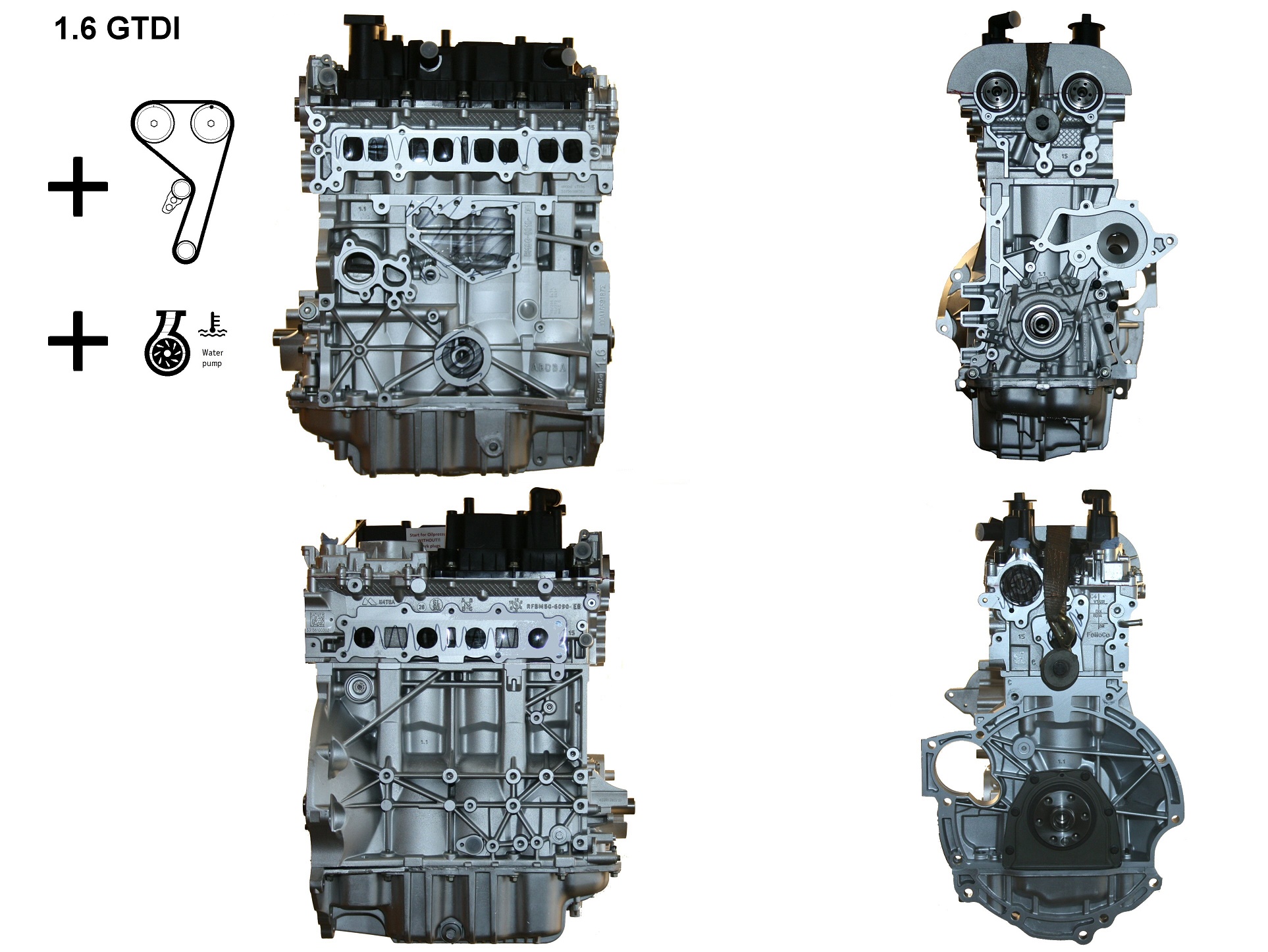Exploring the Benefits of a High-Performance Ford Fiesta Engine
Exploring the Benefits of a High-Performance Ford Fiesta Engine
Blog Article
Unlocking the Power of Engines: A Comprehensive Overview to Efficiency and Efficiency
Recognizing the complex technicians of engines is crucial for both performance fanatics and daily chauffeurs. The solutions may redefine our strategy to engine performance and efficiency in means that are both enlightening and vital.
Comprehending Engine Basics
What makes up the fundamental technicians of an engine? At its core, an engine is a device developed to transform gas right into mechanical power via a collection of regulated surges or burning procedures.
The crankshaft then changes this direct activity into rotational power, which inevitably powers the vehicle. The camshaft controls the opening and closing of the shutoffs, controling the consumption of air and gas and the expulsion of exhaust gases. Additionally, the engine counts on a very carefully calibrated fuel-air combination, ignition system, and cooling system to guarantee optimum efficiency and efficiency.
Understanding engine essentials additionally involves identifying the relevance of engine cycles, such as the four-stroke cycle, which consists of consumption, exhaust, compression, and power strokes. Each stage is critical in making certain the engine works efficiently and efficiently. Mastery of these basic technicians lays the foundation for discovering more complex engine characteristics and efficiency metrics, essential for maximizing both power outcome and effectiveness.
Trick Performance Metrics
Trick efficiency metrics are necessary for examining an engine's efficiency and power outcome, offering valuable insights for both producers and consumers. These metrics serve as criteria for engine performance, enabling for notified choices in design, manufacturing, and acquiring.
One of the key metrics is horsepower, which quantifies the engine's capacity to perform job over time. Torque, determined in pound-feet, is another essential statistics that shows the engine's rotational force, straight influencing acceleration and towing ability. Fuel effectiveness, usually gauged in miles per gallon (MPG) or liters per 100 kilometers (L/100km), assesses exactly how properly the engine transforms fuel right into movement, influencing functional prices and environmental factors to consider.
Additionally, thermal performance measures exactly how well an engine transforms gas power right into valuable job, revealing insights right into energy losses primarily via warm. Exhaust degrees, consisting of carbon dioxide and NOx, are additionally vital, mirroring the engine's environmental impact and compliance with regulatory requirements.

Tuning Methods for Performance
Tuning methods play a significant duty in enhancing engine performance by maximizing efficiency metrics identified in earlier conversations (ford fiesta engine). Various go to the website methods exist to make improvements an engine, each adding to improved fuel economic situation and lowered exhausts
One reliable method is readjusting the air-fuel proportion, ensuring the engine runs within the ideal combustion program. A leaner mixture can improve fuel performance, but it must be stabilized to stop misfires or engine knock. Additionally, reprogramming the engine administration system can alter criteria such as ignition timing, which even more enhances effectiveness while preserving power result.
An additional crucial technique involves modifying the consumption and exhaust systems. Updating to high-performance air filters and exhaust headers can reduce back stress, facilitating far better air movement. This click here for info enables the engine to breathe more easily, bring about improved combustion efficiency.
Moreover, the execution of sophisticated adjusting devices, like dyno testing, offers specific data that allows targeted adjustments. Regularly keeping an eye on these efficiency metrics makes sure that adjusting efforts generate the wanted effectiveness end results. Jointly, these strategies not only strengthen engine performance however also add to long-term sustainability in engine procedures.
Maintenance for Optimum Performance
Regular engine maintenance is crucial for attaining optimal performance and long life. A well-maintained engine not just operates successfully however additionally minimizes the threat of expensive repair services and failures. Trick components needing regular attention consist of oil, filters, belts, and spark plugs.
Transforming the engine oil at advised intervals is crucial, as oil lubricates relocating components and prevents overheating. Changing oil and air filters makes certain that pollutants do not harm engine function. Overlooking these components can cause reduced effectiveness and prospective engine damage.
In addition, checking and replacing used belts and pipes is important to stop unexpected failures. Timing belts, specifically, should be changed according to the maker's schedule to prevent devastating engine damage.
Spark connects must likewise be examined Recommended Reading and replaced as necessary, given that they play a vital role in ignition and gas performance.
Future Fads in Engine Innovation
Accepting advancements in modern technology, the future of engine style is poised to change efficiency and performance throughout numerous applications. Hybrid and totally electric powertrains are coming to be progressively conventional, using reduced discharges and enhanced gas effectiveness.
Furthermore, developments in materials scientific research are bring about lighter, stronger parts that improve engine efficiency while lowering energy usage. Advanced manufacturing strategies, such as 3D printing, permit the production of complex geometries that improve airflow and thermal administration, hence enhancing combustion processes.
In addition, the assimilation of man-made intelligence and machine discovering is established to transform engine diagnostics and efficiency tuning. These technologies can analyze substantial quantities of information in real time, making it possible for predictive maintenance and customized performance improvements.
Conclusion
In final thought, opening the power of engines calls for an extensive understanding of their auto mechanics and efficiency metrics. Carrying out reliable adjusting strategies and adhering to routine upkeep methods significantly enhance engine capabilities.
In addition, the engine relies on a carefully calibrated fuel-air mixture, ignition system, and cooling system to guarantee optimal efficiency and efficiency.
Understanding engine essentials likewise entails recognizing the significance of engine cycles, such as the four-stroke cycle, which consists of intake, compression, exhaust, and power strokes. Proficiency of these essential technicians lays the groundwork for exploring extra complex engine characteristics and efficiency metrics, essential for enhancing both power result and efficiency.

Welcoming innovations in innovation, the future of engine design is positioned to revolutionize efficiency and efficiency across numerous applications.
Report this page